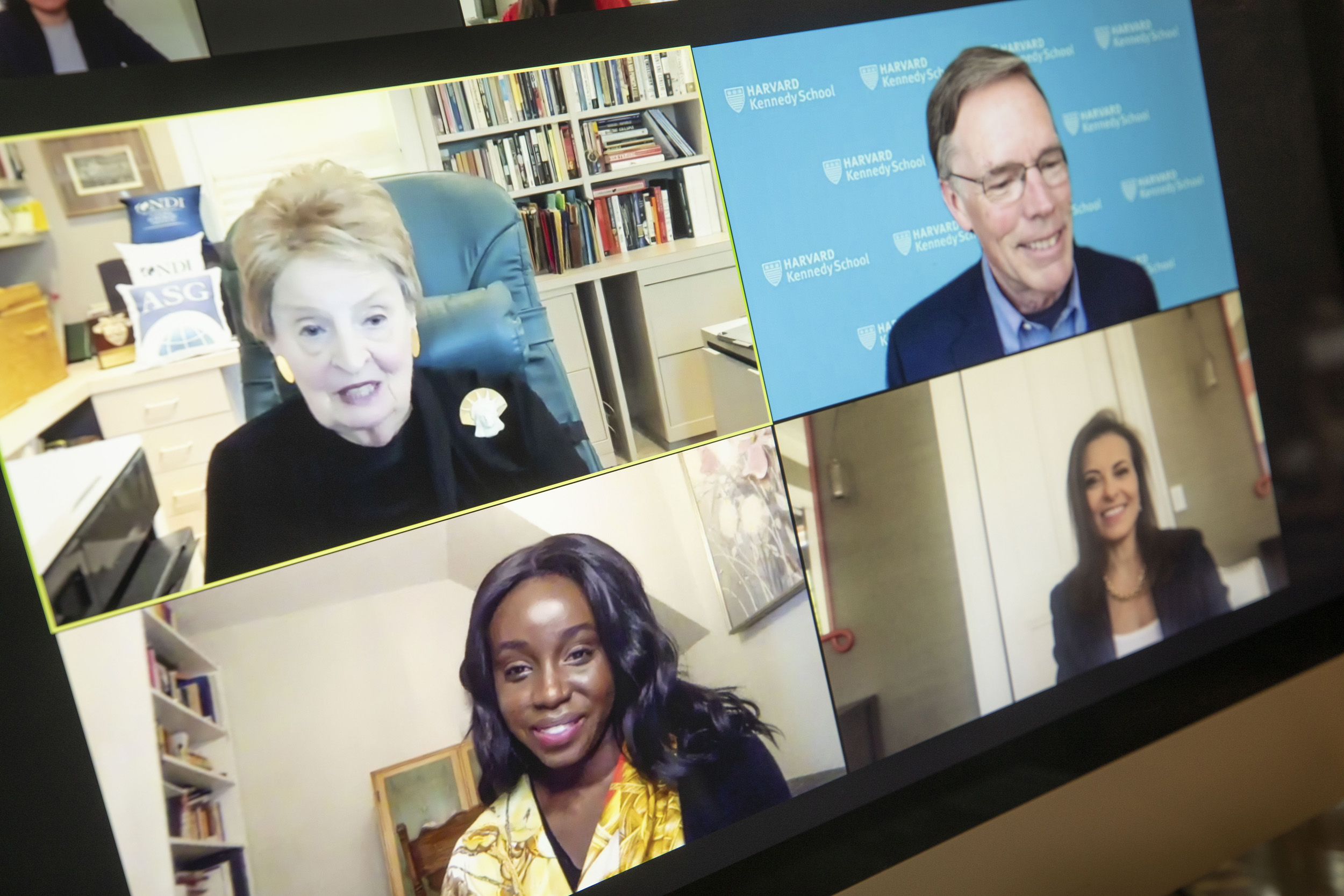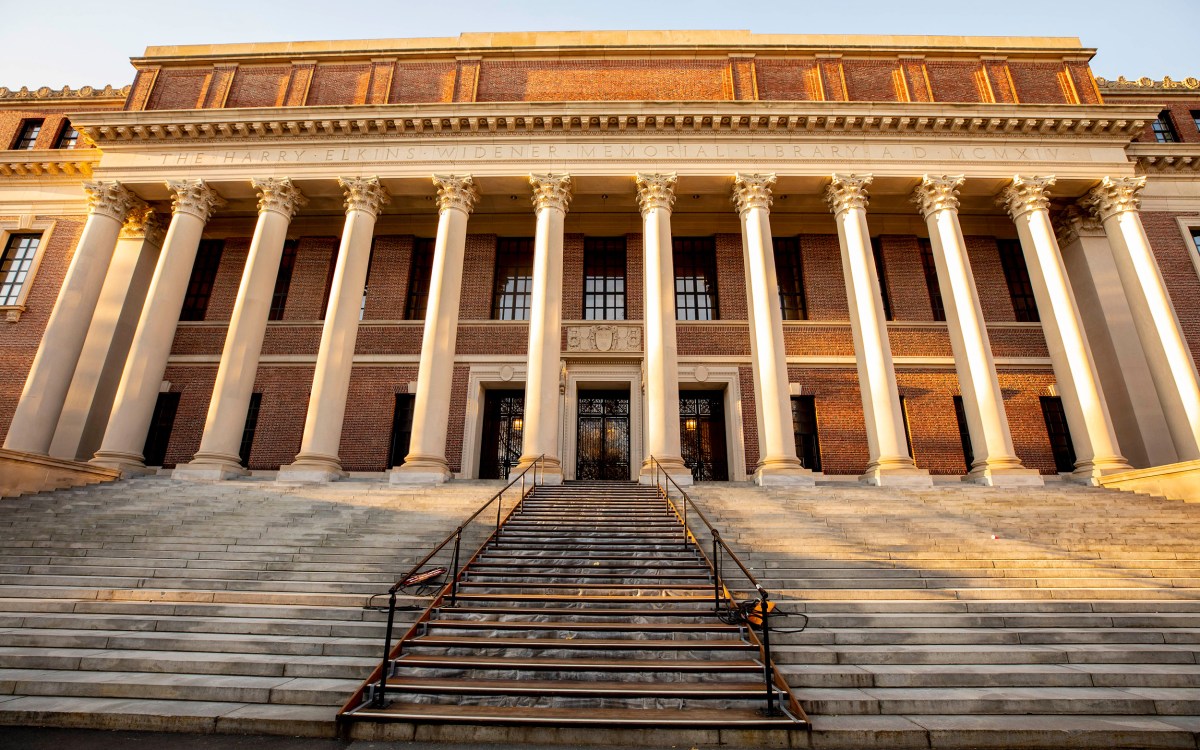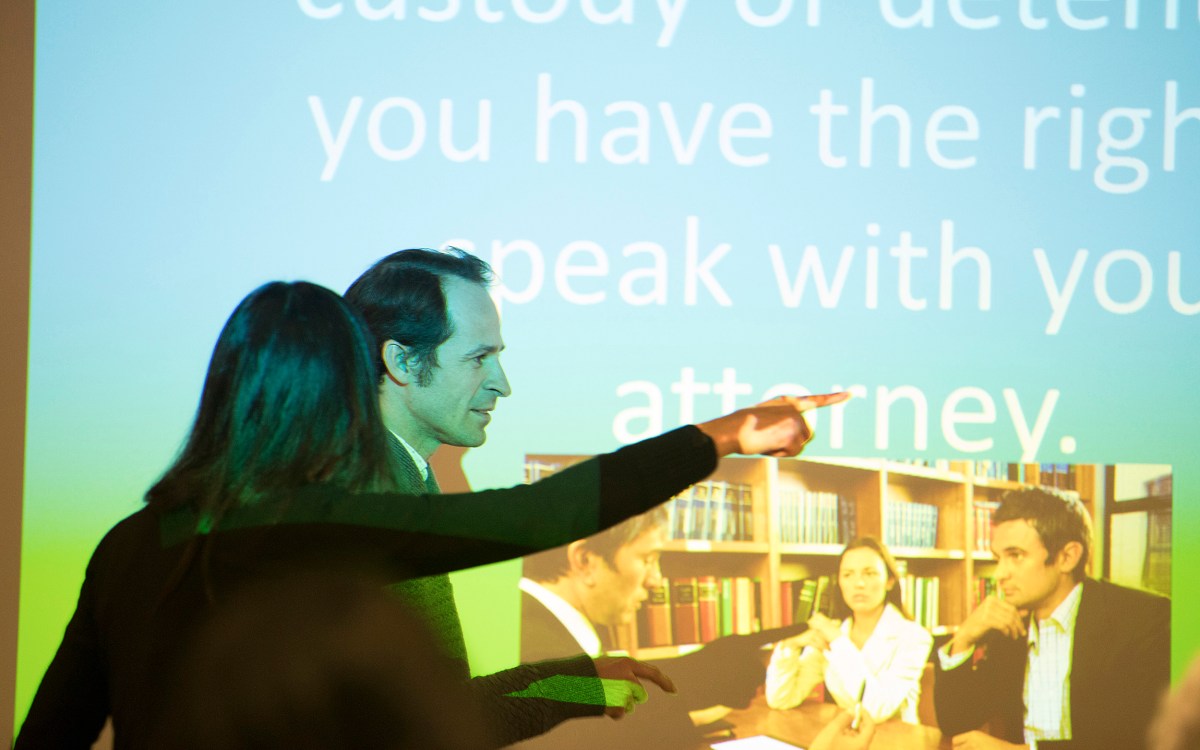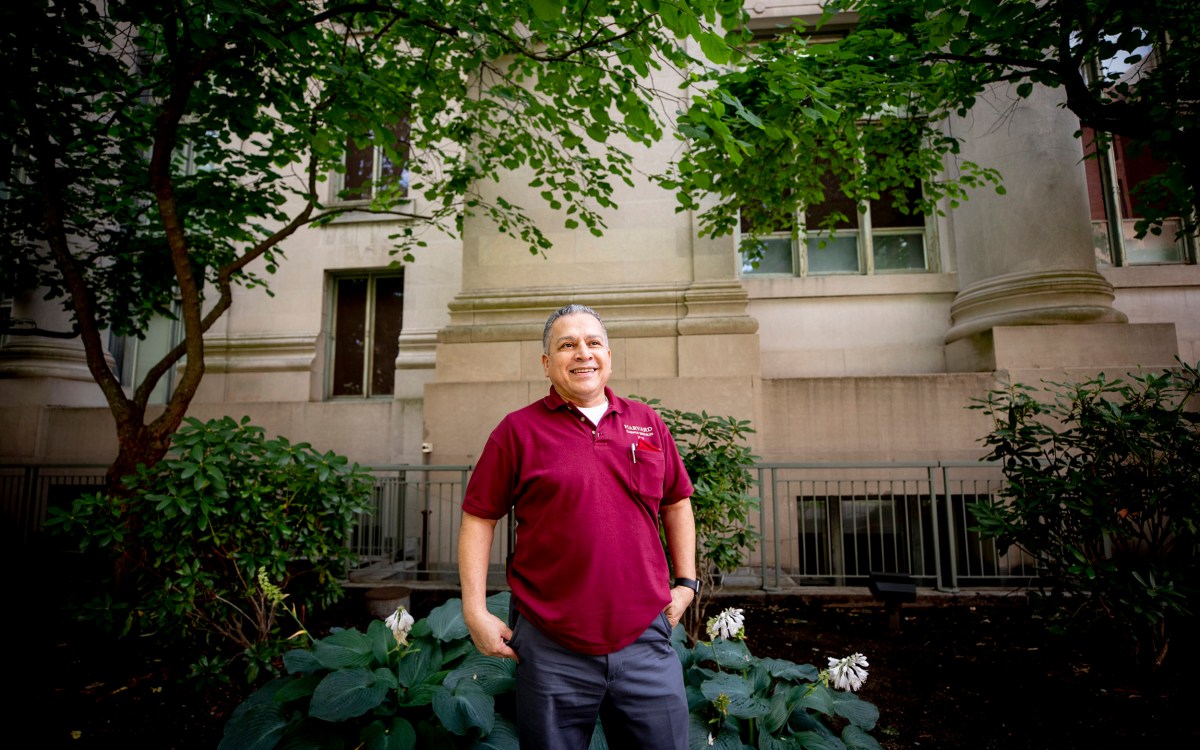
A conversation on immigration with former U.S. Secretary of State Madeleine Albright (clockwise from top left), Nicholas Burns, Dina Powell McCormick, and Ezinne Uzo-Okoro.
Kris Snibbe/Harvard Staff Photographer
Three notable immigrants who served their adoptive land
Madeleine Albright, Dina Powell McCormick, and Ezinne Uzo-Okoro on role of foreign-born Americans
America is a country built on immigrants and refugees, a truth acknowledged by former President George W. Bush in his recent collection of post-White House paintings, “Out of Many, One: Portraits of America’s Immigrants.” That spirit inspired a namesake Belfer Center Future of Diplomacy Project event featuring three notable women portrayed in the book who discussed the role of foreign-born Americans and their own decisions to enter public service in their adoptive nation.
Joining host Nicholas Burns, the Kennedy School’s Roy and Barbara Goodman Family Professor of the Practice of Diplomacy and International Relations, for the 90-minute Zoom event were Madeleine Albright, former secretary of state under Bill Clinton and the first woman to hold that position; Dina Powell McCormick, global head of sustainability and inclusive growth at Goldman Sachs and a former Bush administration adviser; and Ezinne Uzo-Okoro, a mid-career M.P.A. candidate (’21) and current assistant director for space policy in the White House Office of Science and Technology Policy.
Burns, whose long diplomatic career included stints in the State Department and as U.S. ambassador to NATO and Greece, opened the discussion by asking the three about their experiences as immigrants. Representing different generations and coming from different parts of the world, all shared memories of the tug of war between the desire to assimilate and heritage.
Albright, whose family fled the Nazi invasion of their native Czechoslovakia, recounted the moves during her childhood to England and back to Czechoslovakia, before landing in Colorado in 1948, when she was 11. “All I wanted to do was be a plain old American,” recalled Albright, who wore a Statue of Liberty broach.
McCormick, whose Coptic Christian family left Egypt for Dallas when she was 4 years old, remembered wishing her school lunch of hummus and grape leaves was something more typical. “Oh, how I wanted a turkey sandwich and potato chips,” she said. Years later, her mother would explain that food was part of her heritage. “We never want you to forget where you’re from,” her parents told her.
For Uzo-Okoro, whose family left Nigeria when she graduated high school, America was a place to dream. “In Nigeria you have to be careful talking to adults,” she said. However, as a student at Rensselaer Polytechnic Institute, she “used her American liberties to gain confidence.” Her willingness to engage — and even challenge — a representative from NASA at a college job fair resulted in an offer of employment when she graduated in 2004, an opportunity that “changed my life,” she said.
“We are at a critical point of what the world in the 21st century is going to look like. I don’t want to see the Statue of Liberty weeping.”
Madeleine Albright
None of the three initially saw a link between their status as immigrants and their subsequent public service. “The only thing my parents ever pushed me into was studying and doing something with foreign policy,” said Albright. It wasn’t until an earlier career as a journalist was derailed by her husband’s own newspaper job that she got her doctorate and ended up working for Democratic Sen. Edmund Muskie of Maine. “I wasn’t pushed into government service, but I sure am glad I got there,” she said. “There is no greater honor than public service. As a refugee or an immigrant it’s even more important.”
For all three, however, personal history would play a role. Albright recalled her first time swearing in new citizens. The date was July 4, 2000; the naturalization ceremony was held at Monticello, former home of President Thomas Jefferson. One of the new Americans, she said, “walked away saying, ‘Can you believe I’m a refugee, and I got my naturalization certificate from the secretary of state? I went after him and said, ‘Can you believe I am a refugee, and I could be secretary of state?’”
McCormick “fell into” public service when she landed a job working in the state senate in Texas. “It was an upgrade from waitressing,” she said, adding that she quickly “realized how much influence very young people could have.” Her background came to fore, however, on 9/11. Eight months pregnant and serving as an assistant to the president for presidential personnel in the Bush White House, McCormick, recalled being hurriedly evacuated. “They’re never going to let us back into the White House,” she remembered thinking. To her surprise, “President Bush convened a meeting the next morning at 8:15, and the message was, ‘You will never defeat us.’ That was when I began to be able to use my language and my heritage to serve my country,” she said.
Uzo-Okoro inherited a legacy of helping from her mother, a nurse. “She always said you have to give back,” she recalled. That meant that when career choices beckoned — in her case, “NASA versus the corporate world” — the choice was simple. “It was our family’s gratitude to this country,” she said, adding. “I thought I would do it for a year or two, but I was having so much fun and it felt like such an honor to contribute to our space policy.”
The current debate about immigration, nativist prejudice, and violence was raised by subsequent questions from Burns, as well as commenters like Spanish diplomat Jose Luis B. de Colmenares, the Rafael del Pino-Spanish Ministry of Foreign Affairs Fellow with the Kennedy School’s Project on Europe and the Transatlantic Relationship.
Albright acknowledged the ongoing problems, referring to her recent book, “Fascism: A Warning.” “We are at a critical point of what the world in the 21st century is going to look like,” she warned, while urging honest self-appraisal. “I don’t want to see the Statue of Liberty weeping.”
McCormick agreed with her prescription. “We are on a journey to form a more perfect union,” she said. “Being honest is one of the most humble ways we can talk about those issues.” In conclusion, Uzo-Okoro, the youngest of the three, spoke of her own hopefulness, even in the face of conflict. “Everywhere you go in this world, you can spot an American because they are optimistic,” she said. “I believe in the U.S. and the American dream.”







